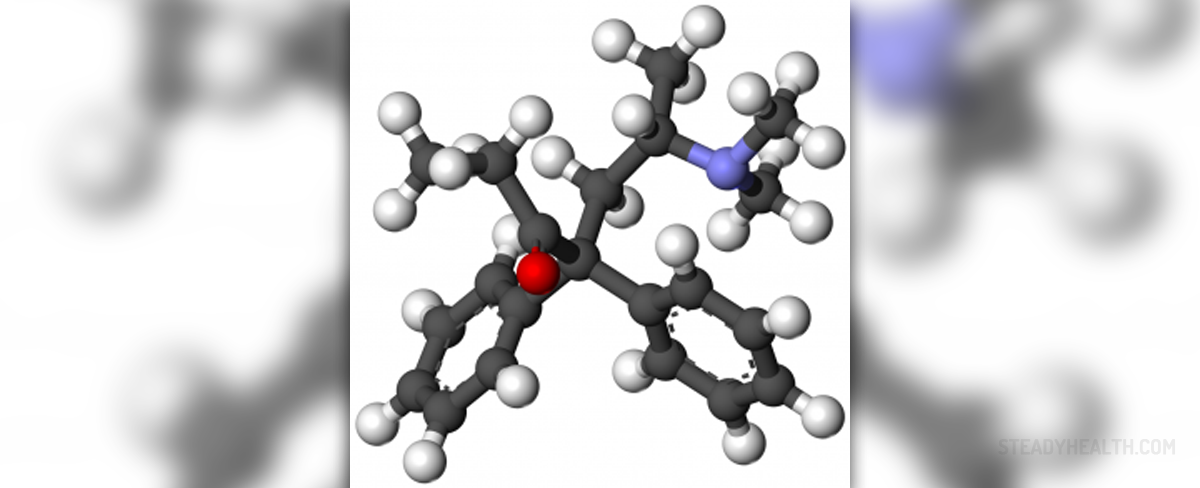
What Is Methadone?Methadone is a synthetic, narcotic pain reliever used to treat opioid addiction. Methadone produces effects similar to heroin and morphine by occupying the opioid receptors in the brain and gastrointestinal tract. It also acts as an antitusive or cough suppressant.
Methadone is used to suppress narcotic withdrawal symptoms thus allowing discontinuing of the heroin use. It is a part of drug addiction detoxification program and maintenance program. The drug is also used as a painkiller in treatment of severe chronic pain.
Methadone can be found under different brand names such as Methadose, Physeptone, Symoron, Dolophine, Amidone and Phy. Methadone is available in the form of solution, tablet and dispersible tablet that must be dissolved in water. However, it is most commonly used in oral liquid form.
Methadone may cause side effects such as constipation, nausea, drowsiness, difficulty urinating, dry mouth and sweating. Serious side effects of methadone include irregular heart beat, slowed breathing and severe dizziness. Methadone can be habit-forming and prolonged use of the medicine results in dependency. The patient who suddenly stops taking methadone may experience methadone withdrawal symptoms that may range from mild to severe.
Methadone Withdrawal SymptomsMethadone is used to help opiate addict to relieve their withdrawal symptoms and reduce opiate cravings as it is believed it causes less severe withdrawal symptoms comparing to heroin and morphine. However, methadone dependency may be much worse if it is used in uncontrolled and excess doses. Methadone withdrawal symptoms cause a variety of physical and psychological symptoms.
Physical Withdrawal Symptoms
Physical withdrawal symptoms caused by methadone include dizziness, runny nose, yawning, sneezing, diarrhea, lightheadedness, nausea and vomiting. Fever, chills, tremors, rapid heartbeat and elevated blood pressure are also present. Methadone can also cause an increased sensitivity to pain, joint and muscle aches, insomnia and in some cases depressed adrenal functions.
Psychological Withdrawal Symptoms
As already mentioned, methadone acts on the opioid receptors of the central nervous system and this effect of the drug causes mental withdrawal symptoms. This includes suicidal thoughts, depression, visual hallucinations, auditory hallucinations, anxiety, paranoia, agitation, delirium and hyperactivity.
Methadone Withdrawal Symptoms in InfantsPregnant or breastfeeding women who take methadone may cause methadone dependency in their infants. Newborns who have been exposed to maternal methadone use may exhibit the withdrawal symptoms within 2 days to a year of the delivery. Methadone withdrawal symptoms in infants include hyperbilirubinemia, hyaline membrane disease, jaundice and thrombocytosis. Severe effects of methadone withdrawal in infants include increased mortality rate and may result in a sudden infant death syndrome.





_f_280x120.jpg)










Your thoughts on this
Loading...